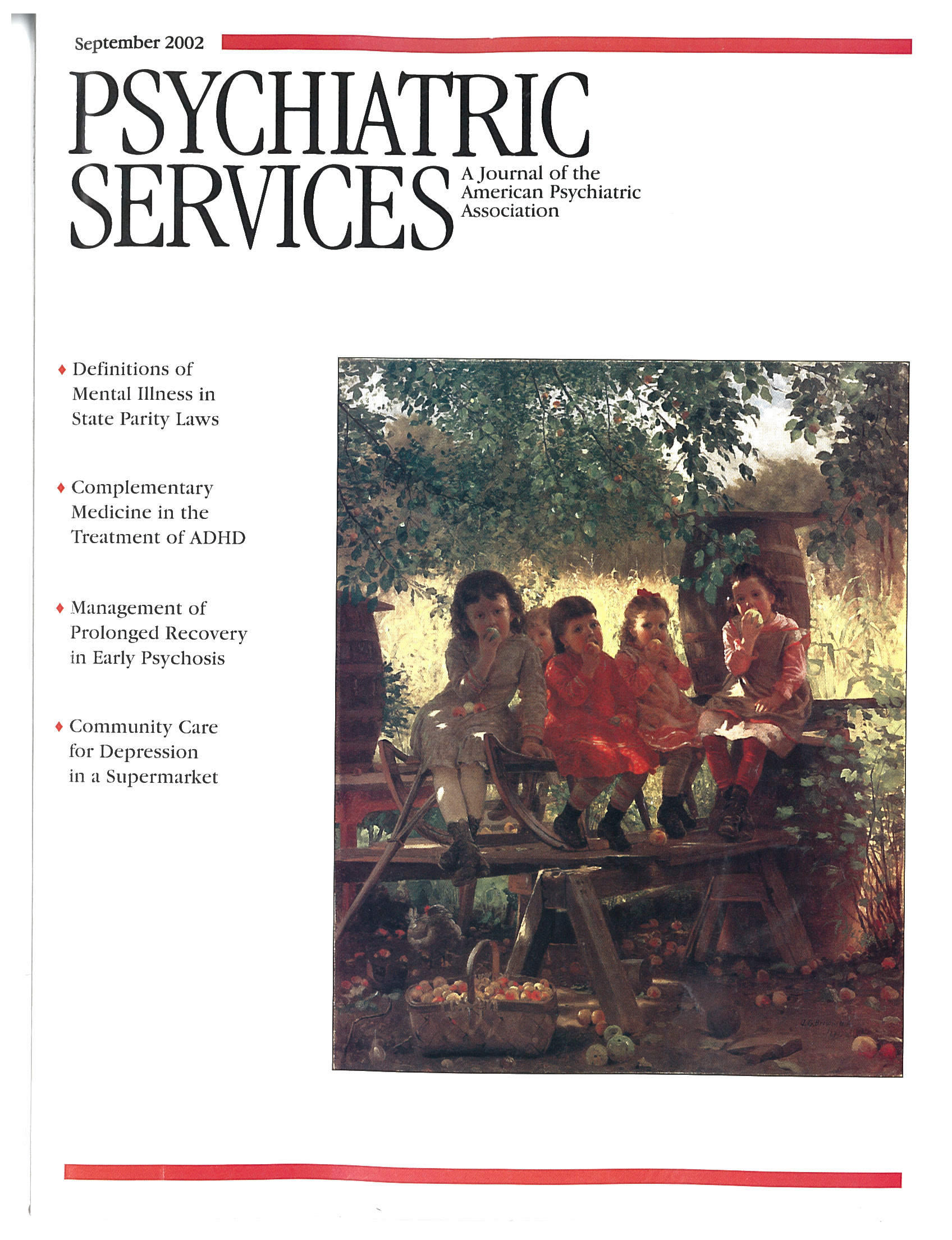Definitions of Mental Illness in State Parity Laws
No single model of mental health parity has been found among the 34 states that have enacted parity laws. Marcia C. Peck, M.D., M.P.H., and Richard M. Scheffler, Ph.D., analyzed the state laws and found a wide variation in how mental illness is defined. The definitions fall into one of three major categories. "Broad-based mental illness," used in 11 states, is the most comprehensive definition and generally covers all disorders in DSM-IV. "Serious mental illness," used in 14 states, and "biologically based mental illness," used in six, are more restrictive definitions. In these 20 states, parity coverage is required for up to 13 specific DSM-IV disorders. The authors examine factors that influence how states choose which disorders are to be covered at parity and discuss the cost and access implications of the use of the more restrictive definitions of mental illness (see page 1089).
Diagnosis and Treatment of ADHD
Two articles in this month's issue focus on childhood attention-deficit hyperactivity disorder (ADHD). The first reports a case-control study by Betsy Busch, M.D., and her colleagues, which found no grounds for the conventional wisdom among pediatricians and others that children with ADHD who are treated in primary care settings have fewer comorbid psychiatric disorders and milder functional impairments. The authors conducted comprehensive assessments of 280 children with ADHD, half from a psychiatric clinic and half from pediatric practices. The ADHD symptom profiles of the two groups were nearly identical, and co-occurring psychiatric disorders were equally prevalent. Measures of cognitive, interpersonal, and academic functioning also were very similar. The authors concluded that the conventional wisdom may result from underdiagnosis of behavioral disorders in primary care settings and that physicians who treat children with ADHD should have a higher level of suspicion for the presence of these disorders (see page 1103). In the second study, Regina Bussing, M.D., M.S.H.S., and her colleagues explored nontraditional treatments for ADHD and factors associated with their use. Parents of 822 children who had or were suspected of having ADHD or whose behavior raised parental concerns were asked about the use of five nontraditional treatments: chiropractic, massage therapy, homeopathic therapy, acupuncture, and faith healing. Five percent of the children had received at least one of these treatments. Faith healing was the most frequently reported, followed by homeopathy. Children who had or were suspected of having ADHD and those whose parents used the Internet as a source of information were more likely to have received such treatments. The authors advise treatment professionals to ask parents about nontraditional interventions and to educate them about evidence-based approaches and the limitations of the Internet as an information source (see page 1096).
Prolonged Recovery From First-Episode Psychosis
Early interventions to change the course of schizophrenia and to prevent the accrual of disabilities are attracting more attention. In the Rehab Rounds column, a group of Canadian researchers and clinicians describes a team that specializes in the treatment of patients whose recovery from a first episode of psychosis has not responded to aggressive early intervention and who continue to experience positive or negative symptoms three months after the initial break. TREAT, which stands for Treatment Resistance Early Assessment Team, provides technical assistance to patients' primary treatment providers. The authors describe principles and interventions that are used in the treatment of this population, including a cognitively oriented approach to persisting positive symptoms in early psychosis. They present the cases of two patients to illustrate the types of recommendations made by TREAT clinicians (see page 1067).
Briefly Noted…
• A pilot study found that the option of visiting a psychotherapist whose office is in a supermarket may be an appealing alternative for depressed women (see page 1132).
• A study in Boston has highlighted the importance of screening for gambling disorders among homeless and profoundly poor patients who seek mental health and substance abuse treatment (see page 1112).
• Twenty-four empirical studies of smoking cessation approaches for persons with mental illness are reviewed for their effectiveness (see page 1166).
• The Alcohol & Drug Abuse column describes some of the psychological dynamics of Alcoholics Anonymous and similar groups (see page 1072).
• Interventions to reduce parasuicide, a major risk factor for completed suicide, are reviewed (see page 1138).

